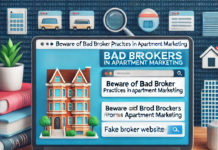This article was written by:
Meggie Nahabedian.
First of all, Congratulations on your new job as a manager. We have created this handbook for you to transition into your new role of a manager successfully. You will find a range of topics and resources that will set you off in the right direction. It also covers dealing with challenging situations and few helpful tips, so you can be better prepared to step into your new role.
1. How to Prepare for the New Role?
Contrary to what you may think, only 15% of new managers get any training while others are expected to figure out everything on their own. In the light of this, we will advise you to educate yourself first. Try to read as many helpful articles and blogs which are relevant to your role. Everyone goes through the first day, week and month as a new manager. And they all have countless stories about the little mistakes they made which can help you learn from them.
Clarify Expectations
It is imperative to have an informal discussion with your boss about his expectations from you. Make sure you understand what he is expecting to see from you. When in doubt, go and ask for advice.
Set Goals & Be Professional
You should set your own goals-like what are you hoping to achieve from this job? Where do you want to see yourself in the long-term?
Once you know what you want from this job, it will become easier for you to put everything into practice.
During working hours, make sure your clothing, behavior, and language all reflect a professional persona.
Understand your Responsibilities
Once you become the manager, you need to realize that other employees are depending on you for growth and success. You are now liable for their performance whether good or bad. Achieving company’s targets is now your responsibility, and you will be held accountable for the performance of your team.
2. Skills You Need to Become a Successful Manager
You need to have a few crucial skills to become a successful manager. You need to be patient and respectful towards your team. You need to be good at problem-solving, and you also need to be highly organized. You should know how to break down big projects into small milestones and then assign them to the right employee. Matching an employee’s skill set to the right task is critical to its successful completion.
Learn to say No! As a manager, you cannot say yes to everything. You have to say no firmly, kindly but say it. Also, don’t try to please everyone because that is just not possible. Your job as a manager is to lead people to achieve targets and not please them. Keep in mind is that as a manager you are not responsible for someone’s feeling. If you stay persistent and honest about how you deal with people in your team, employees will respect you for being fair.
Managers have the added responsibility of handling all kinds of employee conflicts. You will need to be vigilant and keep a proactive approach towards conflicts. Assess the work environment and employee behavior’s and figure out why someone is performing poorly? Don’t forget to motivate and reward your team every time they achieve a milestone.
What Tools You Need to Make your Life Easy
Even the best of managers need a helping hand. One person cannot be at multiple places at the same time but adding specific tools in your life can help you achieve that. By including apps such as Google+ and Trello you can coordinate tasks between your whole team and keep on top of things. The cloud time and attendance tracking tool is another handy tool which helps the manager keep track of his team’s attendance.
How to Build a Strong Team
Building a strong team requires you to put together a diverse group of people, all with different skill sets. Each member of the team will bring his expertise to the table ensuring that you have a strong team by your side.
You will learn to appreciate each’s uniqueness. Using your judgment, you can utilize their strengths, skills, and blind spots. Remember always to motivate your employees and make them feel comfortable at their workplace. Do not harass them or pressurize them if they are not meeting targets. Be kind to them and ask them if they have any personal issues. Try to be understanding and provide support where necessary.
Manager must-read books
As a manager, you will be facing new situations every day. Unlike other employees, for you, no two days will be the same. You must be prepared for any kind of conflict, problem, issue or situation to arise. It is your job to be ready for the unforeseen. And nobody can tell you how to deal with such things. You can, however, read as many books, articles, and blogs as you can. As your knowledge increases, you feel more confident about dealing with issues at the workplace. You are better equipped to make informed decisions based on facts and past situations instead of guessing what is the right foot forward.
End Note
As a manager, you need to work on improving your communication skills continuously. Everything you do involves communication in one form or another. Encourage open-ended conversations where your team members are comfortable in approaching you if they are confused about something. Delegate responsibility to each employee according to his capabilities and always be fair in case of a conflict.
Remember to be respectful towards each employee, so you create a productive working environment around you, where everyone feels valued at work. You need to keep learning yourself in order to drive your team forward. Keep in mind that best communication is when two people who are talking to each other are also willing to listen to each other. A good manager will always be empathetic towards all his team members.
Meggie has extensive experience in the marketing and management industry. Highly sociable and in any situation and tries to bid on a win-win formula.





